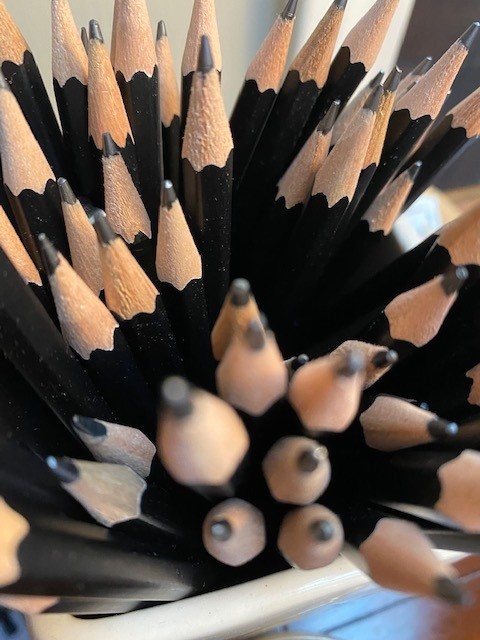Pre-Covid when I was heading up an NGO in New Haven Connecticut, where Yale intern talent was abundant, there was a tradition. The person selected to keep sharp the container of pencils on my desk, a seemingly menial task, was in fact a person identified as one possessing a talent, sometimes obvious sometimes not so obvious, worthy of recognition and nurturing. This tradition emerged after earlier trials picking the most junior person for the task, ended up being perceived as demeaning to the designee. The new approach, which remained in place as long as I steered the ship, converted what was perceived as a humiliation into a much coveted honor. Not entirely unintentionally, it also gave me the opportunity to have one-on-one interaction with an intern–a challenge in our busy go-get ’em world.
This revised approach to what I thought was a good exercise in humility grew out of a sense of something I had learned in my own career–which was that leading an organization was easiest when one had somewhere on the resume, held the most junior job that often involved humdrum tasks. It was only then as a leader, that I felt a person could truly have a properly developed sense of empathy, appreciate youthful eagerness to climb the ladder and sympathize with a young person’s sense of underutilization of their abundant intelligence. In the current workplace climate keeping the bosses pencils sharp seemed a good way to encourage humility–a lesson hard to learn or be taught in ivy league corridors. The pencil sharpener designation, in stark contrast to being viewed as a humiliation, became a coveted honor– able to generate just a little disappointment to those not selected for the task. Not accidentally, the sharpening exercise often led to a chance to sit down and have interesting exchanges with young wonderfully interesting students. Conversations about life, goals and direction often ensued.
In the Covid and post-Covid world, where many of us are now working remotely, the humility lesson gets taught twice. For those of us responsible for sharpening our bosses pencils so many years ago, we are left again to our own unassisted devices, to keep our own pencils sharp.
So if you find yourself on a teams or zoom call with me, and think I’ve gone silent, consider this: I may be, behind that mute button, sans interns, sharpening my HB#2 Staedtlers wondering when I shall ever again have the opportunity to share life’s lessons during an encounter disguised as a pencil sharpening session.



